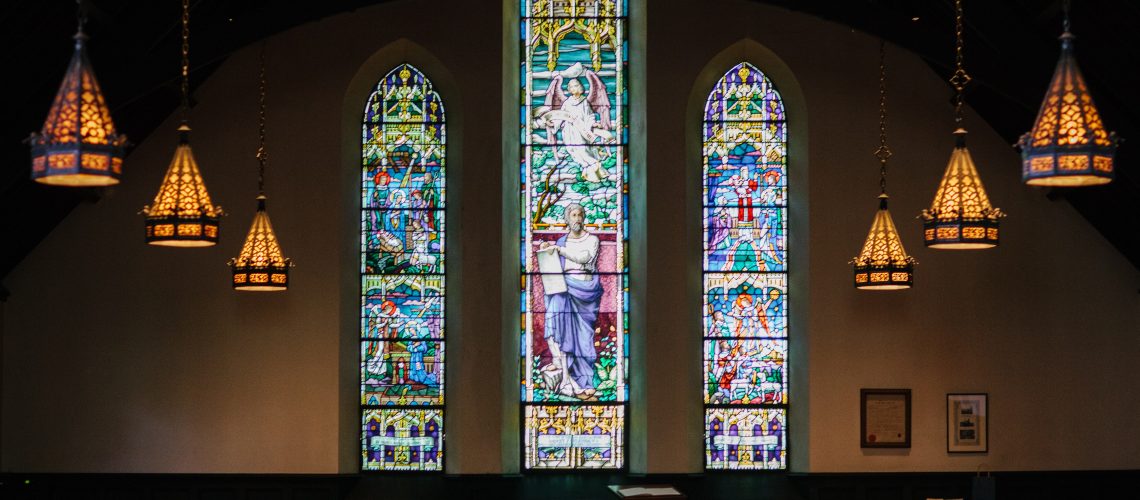Key Verse: “Be careful not to practice your righteousness in front of others to be seen by them. If you do, you will have no reward from your Father in heaven. (Mat. 6:1)
In 1967 the Queen Mary sailed into the harbor at Long Beach, California, to be refurbished as a maritime museum and hotel. The ship was famous for its three funnels that stood proudly above the decks. As part of the work, the funnels were removed, and as they were removed large parts of them collapsed; the many layers of paint turned out to be thicker than the metal that had given way to rust. The three funnels had looked good, but they had no substance. When we see that in people, we call it hypocrisy.
Jesus was born and raised as a Jew in a Jewish culture. Jewish society at that time was governed by religious leaders, and life revolved around the Temple and the synagogues. It was cool to be religious, and to be religious was to be ‘righteous,’ to do the right things. Jesus knew that kind of righteousness could easily lead to hypocrisy. In Jewish culture there were three great pillars— giving to the needy, prayer, and fasting. To do these things was to be admired, so Jesus points a finger at each of these and says, “Be careful not to practice your righteousness in front of others to be seen by them. If you do, you will have no reward from your Father in heaven.”
We don’t live in a monolithic religious culture as these early Jews did. We may have fellow-Christians at church who expect us to behave in certain ways, and we may have non-Christians at work or in our neighborhood who have different expectations. And this poses a question: Do you act or talk differently when you are with different people in order to create different impressions? Do you want your Christian friends to think you are more Christlike than you really are? And do you want your non-Christian friends to be impressed by your wit or your skill or your popularity?
If that is the case, that’s what we call hypocrisy; and Jesus warns us to avoid it. It’s a temptation and a trap. Our word hypocrisy is derived from a Greek word associated with the stage, with playacting. It had to do with putting on a show, with acting like a character different from yourself. That’s the danger. Am I putting on a show, trying to impress people, acting differently for different audiences? Does my audience determine which character I play? If it does, that’s hypocrisy.
On one occasion, when Jesus was confronted by some Pharisees and teachers of the law, He addressed them directly like this: “You hypocrites! Isaiah was right when he prophesied about you: ‘These people honor me with their lips, but their hearts are far from me’” (Mat. 15:7-8). With these words, He goes to the main issue: Hypocrisy is a heart disease. It is religion without God. Again, in Mat. 23:27-28, Jesus speaks to some of the same hypocrites in these words: “Woe to you, teachers of the law and Pharisees, you hypocrites! You are like whitewashed tombs, which look beautiful on the outside but on the inside are full of the bones of the dead and everything unclean. In the same way, on the outside you appear to people as righteous but on the inside you are full of hypocrisy and wickedness.”
We need to be aware of the danger of letting our audience determine the characters we play. Our text says, “Be careful”; another version says “Beware.” I challenge you to go through the next week with an awareness of your behavior before different people. Do you change your behavior to make a different impression? Do you go so far as to assume a different character? May the Lord preserve us from hypocrisy. May He keep us from depending on the paint and not the structure under it.
Prayer: Father, please do that for me. Make me aware of any hypocrisy in my life. Call me up short when I am tempted to act a part. Keep my heart close to You. Keep my motives pure, and help me to behave with integrity.
Author: Lindsay Hislop was raised in southern Scotland and southern Ontario and now lives in the southern United States. He worked in the engineering field for 15 years (mostly in Canada) before pursuing an academic career. He has taught for over thirty years at Columbia International University. He also serves as an elder in his church, where he teaches and preaches regularly. He is married to a wonderful wife Pam and has two terrific children, Holly, who lives in Canada, and Doug, who lives in Columbia. His four grandchildren, Isaac, Madeline, Lindsay, and Dolan, are also pretty special. He likes doing carpentry and odd jobs around the house.




